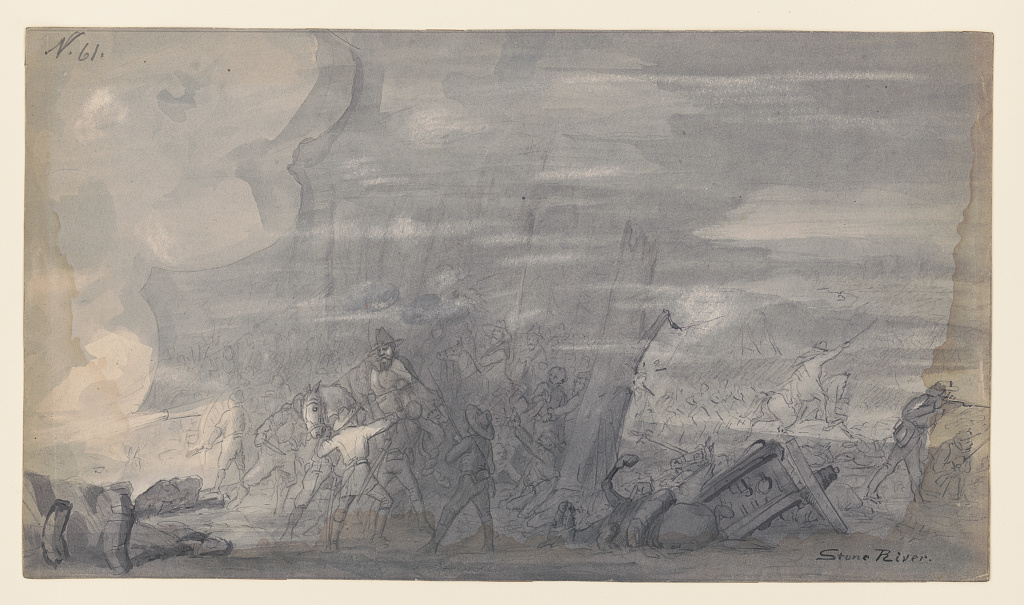No one mention he challenged Karl Marx to a duel...
He had learned the trade of a carpenter while in England, and so earned his livelihood.[3] In 1850, when the League of Communists split, he (together with Schapper) was leader of the anti-Karl Marx grouping. In London, Willich became an associate of the French revolutionary and political exile Emmanuel Barthélemy. According to Wilhelm Liebknecht, Willich and Barthélemy plotted to kill Karl Marx for being too conservative. Willich publicly insulted Marx and challenged him to a duel, which Marx refused to fight.[5] Instead Willich was challenged by a young associate of Marx, Konrad Schramm. The pistol duel was fought in Belgium with Barthélemy acting as Willich's second;[6] Schramm was wounded but survived the encounter.[5] Barthélemy was hanged in London in 1855 after shooting and killing his employer and another man.[7][8]
Snip... for
@O' Be Joyful... who are these Ohio Hegelians...
Coming to the United States in 1853, Willich first found employment at his trade in the
Brooklyn Navy Yard. Here his attainments in mathematics and other scientific studies were soon discovered, and he found more congenial work in the coastal survey. In 1858, he was induced to go to Cincinnati as editor of the
German Republican, a German-language free labor newspaper, which he continued until the opening of the
Civil War in 1861.
[3] Willich became known as one of the
"Ohio Hegelians" (followers of German philosopher Georg Wilhelm Friedrich Hegel), along with John Bernhard Stallo, Moncure Daniel Conway, and Peter Kaufmann.
Snip...
@rittmeister and
@Wehrkraftzersetzer ... this guy Hegel still got traction in Germany...
Hegelianism is the philosophy of G. W. F. Hegel which can be summed up by the dictum that "the rational alone is real", which means that all reality is capable of being expressed in rational categories. His goal was to reduce reality to a more synthetic unity within the system of absolute idealism.
The Young Hegelians (German: Junghegelianer), or Left Hegelians (Linkshegelianer), or the Hegelian Left (die Hegelsche Linke), were a group of German intellectuals who, in the decade or so after the death of Georg Wilhelm Friedrich Hegel in 1831, reacted to and wrote about his ambiguous legacy. The Young Hegelians drew on his idea that the purpose and promise of history was the total negation of everything conducive to restricting freedom and reason; and they proceeded to mount radical critiques, first of religion and then of the Prussian political system. They rejected anti-utopian aspects of his thought that "Old Hegelians" have interpreted to mean that the world has already essentially reached perfection.
The
Right Hegelians (
German:
Rechtshegelianer),
Old Hegelians (
Althegelianer), or
the Hegelian Right (
die Hegelsche Rechte), were those followers of
German philosopher
Georg Wilhelm Friedrich Hegel in the early 19th century who took his philosophy in a politically and religiously
conservative direction. They are typically contrasted with the
Young Hegelians, who interpreted Hegel's
political philosophy as supportive of progressive politics or religion.
[

 www.cincinnatimagazine.com
www.cincinnatimagazine.com

 emergingcivilwar.com
emergingcivilwar.com

www.cincinnatimagazine.com
